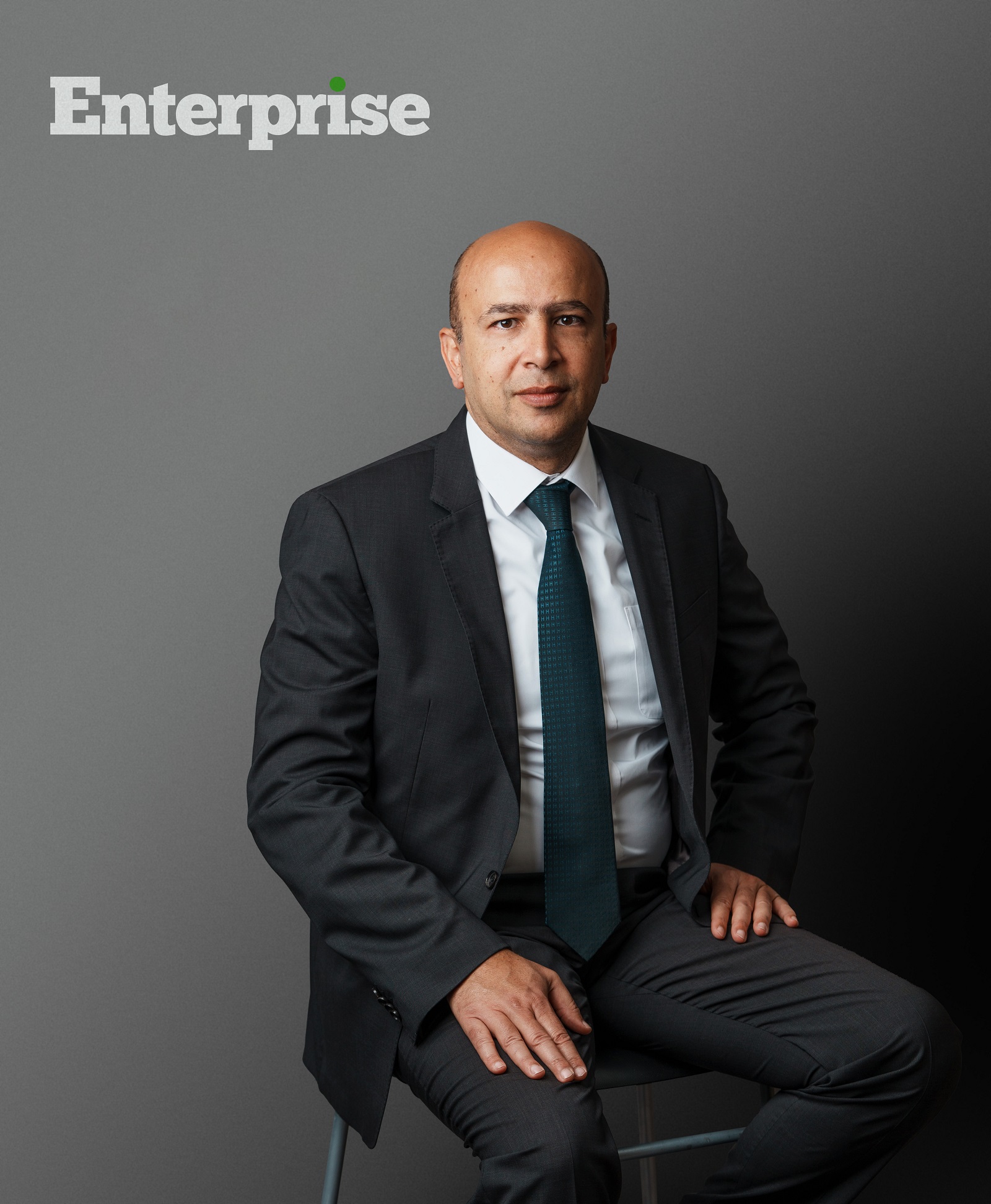Exporting should focus on services, not just goods, says PwC’s Maged Ezzeldeen

We recently had breakfast with 20 top CEOs to talk about why exports and FDI are key to our economy going forward. After reading our five-step recipe for turning Egypt into a global export hub and FDI magnet, every participating CEO has agreed to answer two questions on the record.
We’ve already heard from: GSK’s Mohamed El Dababy | McKinsey’s Jalil Bensouda | Somabay’s Ibrahim El Missiri | ALC Alieldean Weshahi & Partners’ Bahaa Alieldean | HSBC Egypt’s Todd Wilcox | Actis’ Sherif El Kholy | Amazon’s Omar El Sahy | BII’s Sherine Shohdy | Mansour Automotive’s Ankush Arora | Apex’s Tom Maher | Travco’s Moataz Sedky | IACC’s Nada El Ahwal.
Speaking to us today: Maged Ezzeldeen (LinkedIn) is Egypt senior partner and deals leader at PwC Middle East. PwC is one of the largest international professional network services and is among the Big Four accounting firms. Maged has been with the firm for almost 30 years and is currently a board member of the British Egyptian Business Association, Egyptian Private Equity Association, Entrepreneurs’ Organization, and Malikah.
ENTERPRISE- Which industry would you put on a focused short list — and why?
MAGED EZZELDEEN- I would start with our outsourcing industry. Egypt is aiming to increase its exports to reach USD 100 bn, but we always seem to think of goods, rather than services, when addressing exports. But whether it be goods or services that we are
exporting, in my humble opinion, we are more competitive with India than we are with China
in the offshoring of services. The export subsidy program currently only applies to exported goods, but I think there’s a good chance to extend the program to include services as well.
If we focus on offshoring, we could open up lots of areas that support the idea of “exporting services,” through three main categories. The first is business process outsourcing, which is a practice in which an organization contracts with an external service provider to perform an essential business function or task. The second is managed service, like IT, human resources, or finance, so a company can outsource day-to-day management responsibilities and functions to cut expenses and streamline operations. Then there’s high-tech outsourcing, which is the use of external service providers to effectively deliver IT-enabled business processes and infrastructure solutions for business outcomes.
Egypt is primed to expand its offshoring because it has a lot of competitive advantages: We have a large talent pool in the skilled workforce, which is one of the cornerstones of Egypt’s very unique position among global outsourcing destinations. Within this talent pool, we also have attractive language skills. In addition to having Arabic as our official language, English and French are widely spoken and we have a significant number of German speakers thanks to the variety of our schooling systems. Then there’s the proximity to key markets thanks to Egypt’s strategic location at the crossroads of Europe, Africa, and Asia. Egypt is cost competitive when we look at operating costs per full-time equivalent (FTE), which can save as much as 30% of costs when compared to other outsourcing destinations like Poland, Ukraine, Bulgaria, or Romania. And we can’t forget that there’s major government backing, whether it comes to investments in high-quality digital infrastructure or providing financial incentives to outsourcing players.
E- Why are exports and FDI the way forward?
ME- We’ve experienced major currency devaluations more or less every century, and we’ve seen three in the past six years alone. I’m not an economist, but if any country consumes more than it produces and imports more than it exports, it will inevitably face an FX shortage and deplete its reserves.
Everybody knows Egypt’s main FX sources: The tourism sector, remittances, Suez Canal revenues, FDI and hot money, and exports. The first three sources there are beyond government’s control — there are events like the pandemic that can significantly impact the tourism industry, and Suez Canal revenues are directly linked to international trade levels. Similarly, given that around 65% of remittances are from Egyptian expats in the Gulf, we’re at the mercy of shifting trends in these countries, such as nationalization which can reduce remittances.
By contrast, increasing FDI and exports are two things that we can control. Considering the economic challenges Egypt is currently facing, focusing on import substitution and increasing our exports might help decrease the pressure on the EGP. Attracting FDI is central to Egypt’s development strategy; it has multiple benefits like creating new jobs and reducing poverty. That will, in turn, feed into the government’s steps to curb inflation, increase local production and exports, reduce reliance on imports, and shore up FX reserves.
To increase FDI, Egypt must improve its business climate by eliminating uncertainty and making regulatory and legislative stability by the order of the day. Investors need to be able to estimate tax exposure with reasonable certainty, and the government must work on rapid dispute resolution and stop crowding out the private sector.
The expansion of golden licenses for industry is a very encouraging step. So is the drafting of the state ownership policy document to ensure level playing field for all businesses, improving the infrastructure, and availing energy to the industrial sector and industrial land allocations to fight corruption.